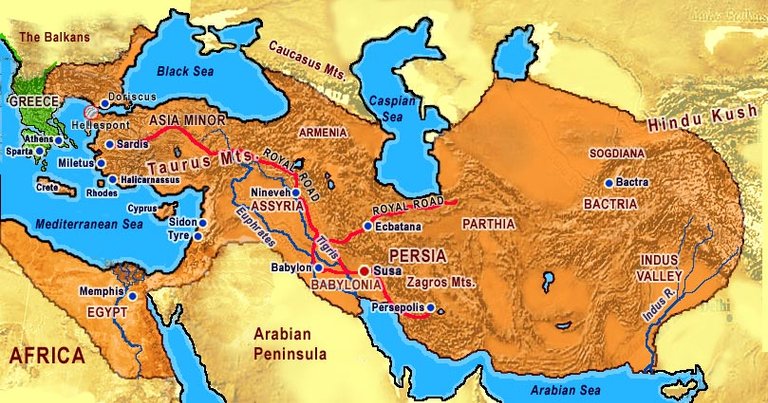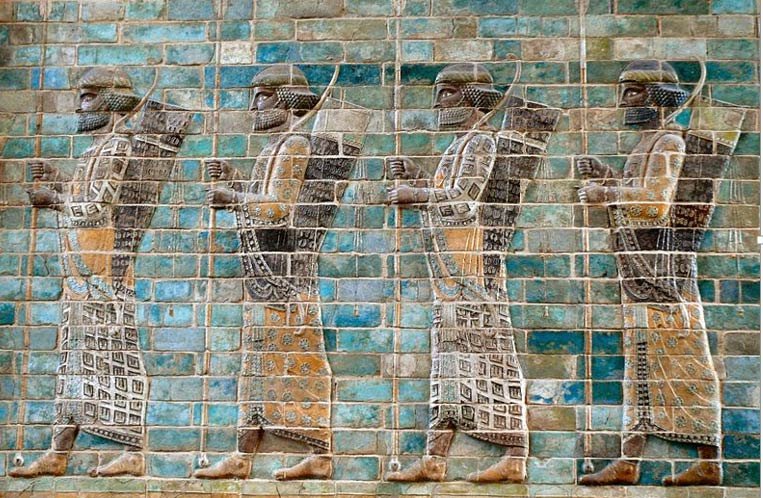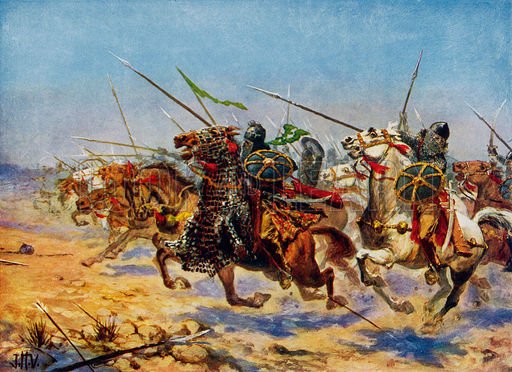What We Have Not Known About Persian Empire And Its Constituents

Image Source
As an empire, Persia is in the modern sense and the considerable imperial realm under the sway of Napoleon, for we discover it comprising of various states, which are without a doubt subordinate, however which have held their own particular individuality, their manners, and laws. The general enactments, official upon all, did not encroach upon their political and social peculiarities, but rather even secured and kept up them with the goal that each of the nations that constitute the whole had its own particular form of constitution.
The Persian Empire stretches out a huge number of nations, and leaves to every one its specific character. Some have even kings of their own, every one has its particular arms, language, way of life, and customs. All this assorted variety exists together congruously under the unbiased territory of Light.
Three Geographical Elements of Persia
Uplands of Persia and Media
Valleyplains of the Euphrates, Tigris and of the Nile
The Phoenicians
Persia subsequently joined in itself the three natural principles, while China and India stayed unfamiliar to the ocean. We find here neither one of the united totality which China presents, nor that Hindoo life, in which a turmoil of fancy is common all over the place. In Persia, the government, however joining all in a central unity, is yet a combination of individuals, leaving each of them free.

Image Source
In this way a stop is put to that brutality and fierceness with which the nations had been need to bear on their dangerous quarrels, and which the Book of Kings and the Book of Samuel adequately authenticate. The lamentations of the prophets and their curses upon the state of things before the victory, demonstrate the wretchedness, devilishness and disorder that won among them, and the happiness which Cyrus diffused over the district of Anterior Asia.
It was not given to the Asiatics to join self-reliance, freedom and considerable life of mind, with culture, for example, an interest for differing interests and a colleague with the accommodations of life. Military valor among them is predictable just with barbarity of manners. It isn't the quiet mettle of order, and when their mind opens to a sensitivity for different interests, it immediately goes into effeminacy, allows its energies to sink, and makes men the slaves of a drained arousing quality.
The Persians however controlling over wealthier, more edified and prolific lands, held on the whole fundamental characteristics of their ancient mode of life. They remained with one foot on their ancestral domain, with the other on their remote victories. In his ancestral land the King was a companion among companions, and as though encompassed by rises to. Outside of it, he was the lord to whom all were subject, and bound to recognize their reliance by the payment of tribute.
Dependable to the Zend religion, the Persians offer themselves to the quest for devotion and the pure love of Ormuzd. The tombs of the Kings were in Persia Proper, and there the King once in a while went by his countrymen, with whom he lived in relations of the best effortlessness. He carried with him presents for them, while all different nations were obliged to make presents to him.

Image Source
At the court of the ruler there was a division of Persian cavalry which constituted the first class of the whole army, ate at a common table, and were subject to an absolute best teach in each respect. They made themselves celebrated by their dauntlessness, and even the Greeks awarded a tribute of respect to their valor in the Median wars. At the point when the whole Persian host was to take part in an endeavor, a summons was first issued to all the Asiatic populations. At the point when the warriors were collected, the campaign was embraced with that character of eagerness, that migrant air which formed the characteristic of the Persians.
In this manner they attacked Egypt, Scythia, Thrace, and finally Greece, where their immense power was bound to be broken. A march of this kind looked practically like a resettlement, their families went with them. Every showed its national highlights and warlike accouterments, and poured forward enmasse. Each had its own particular order of march and mode of warfare. Herodotus portrays for us a splendid photo of this assortment of angle as it presented itself in the immense march of nations under Xerxes.
However, as these individuals were so unequally taught, it is straightforward how the small yet all around prepared armies of the Greeks, animated by a similar spirit, and under incomparable authority, could withstand those endless yet disorderly hosts of the Persians. The territories needed to accommodate the help of the Persian cavalry, which were quartered in the focal point of the kingdom.
Babylon needed to contribute the third piece of the provisions being referred to, and thus seems to have been by a long shot the wealthiest district. As respects different branches of income, every was obliged to supply the choicest of the curious produce which the district managed. In this way Arabia gave frankincense, Syria purple.

Image Source

Thanks for sharing @ juvyjabin
interesting.
History repeat itself.
Thanks for the infomation
Thank you for your information! write you more!